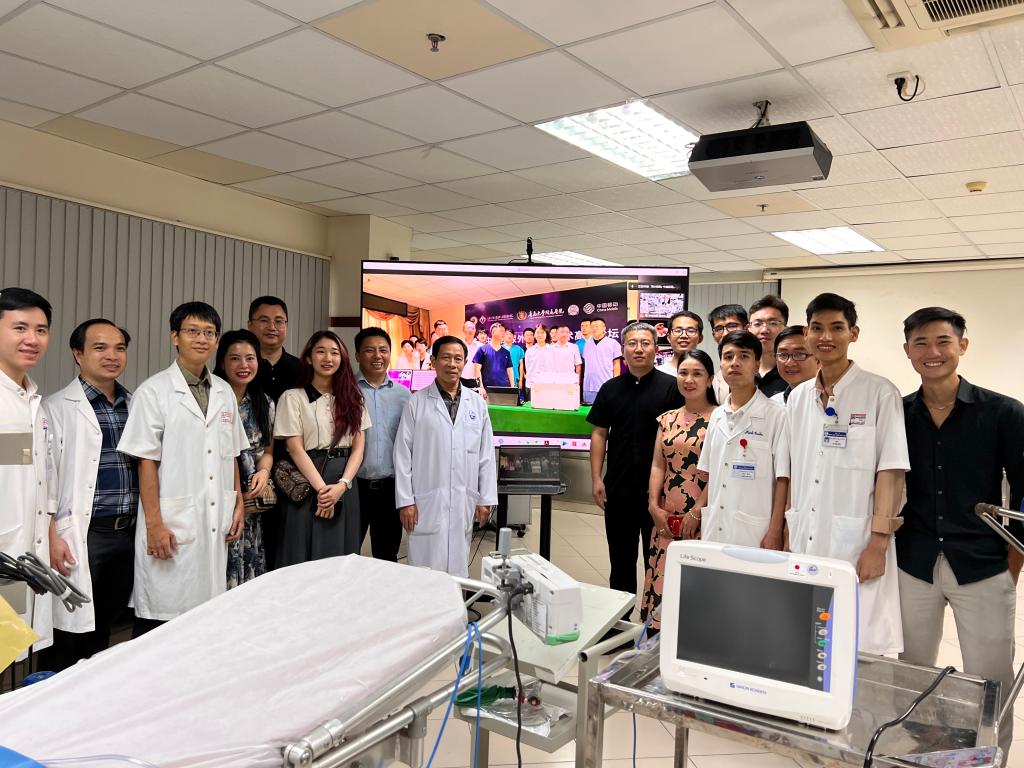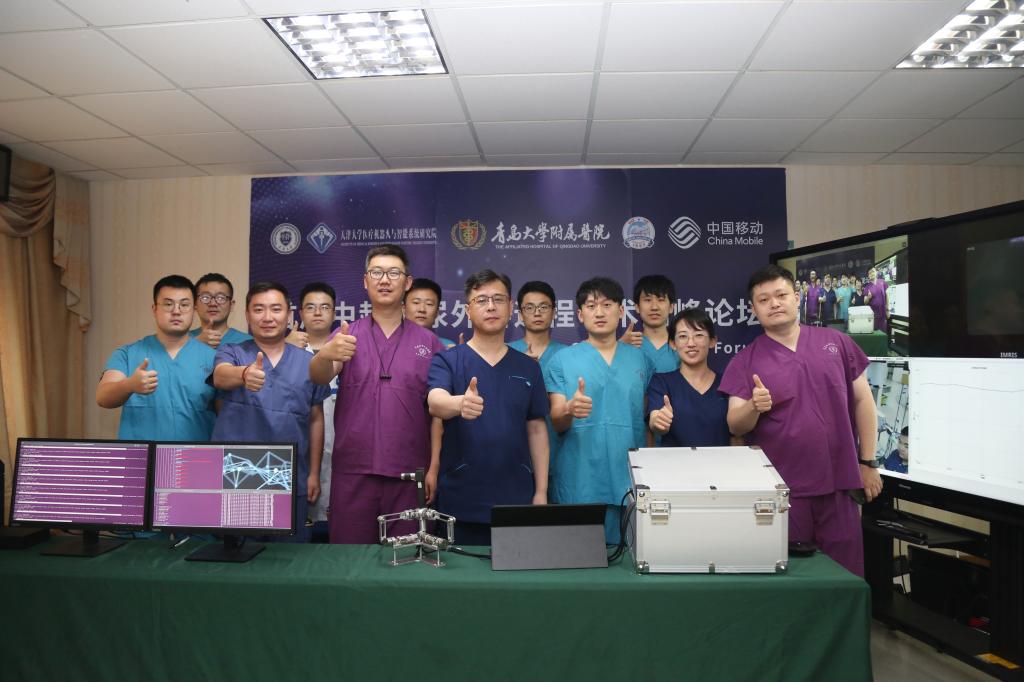
(Reporter Eva Yin) On June 30, 2023, the first international cross-border robotic remote ureteroscopy surgery animal experiment was completed between Qingdao, China, and Hue, Vietnam, two places that are 2500 kilometers away from each other. Jointly conducted by Tianjin University's Institute of Medical Robotics and Intelligent Systems, Qingdao University Affiliated Hospital, Hue Central Hospital in Vietnam, and China Mobile, among other organizations, the surgery is an exciting development that showcases the advancements in medical robotics and telemedicine.
In the afternoon, the surgical experiment began after thorough preparations from all parties involved. In the operating room, using the "SDWAN+ Remote Surgery" application developed by China Mobile, a cross-border network was utilized to connect the remote surgery conference room at Qingdao University Affiliated Hospital's South Campus and the operating room at Hue Central Hospital in Vietnam. Professor Niu Haitao from Qingdao University Affiliated Hospital operated the robotic ureteroscope remotely to perform surgery on the experimental animal pig at Hue Central Hospital. It is worth noting that the team had previously collaborated on June 6 and successfully conducted the first domestic remote ureteroscopy surgery animal experiment in Qingdao.

Urinary tract stones are prevalent among urological diseases in China, affecting a significant number of patients. Traditional ureteroscopy surgeries are bothered with limitations such as low precision, an unstable visual field, and the possibility of operator fatigue. To address these issues, the development of robotic remote ureteroscopy surgery is very significant. It is said to help doctors enhance their operating abilities, reduce surgical complexities, and effectively minimize fatigue in the neck, waist, and upper limbs during stone fragmentation procedures.
In this groundbreaking research on cross-border robotic remote ureteroscopy surgery, the team from Tianjin University made significant strides. They successfully optimized the design of the robotic system, allowing for precise manipulation of flexible surgical tools in narrow spaces. By implementing a strategic approach for robot hand-eye coordination mapping, they improved the comfort of the operation. Additionally, the team reduced the delay in master-slave movements through AI-based simulated training. To ensure surgical safety, they devised a multi-tasking coordination scheme in the remote robot system. These advancements played a key role in the success of the surgical procedure and hold promising potential for future applications.

During this remote surgery, the use of SDWAN service and network solution guaranteed the remote communication between Qingdao and Hue. The operator's surgical instructions from Qingdao University Affiliated Hospital were successfully transmitted to Hue Central Hospital with a communication delay of below 80 milliseconds, ensuring the smooth diagnostic and treatment procedures on the experimental animal. There is barely any noticeable lag.
As sources in Tianjin University tell, the research team at its Institute of Medical Robotics and Intelligent Systems has made several breakthroughs before this day’s surgery. They conducted the world's first 5G remote laparoscopic surgery clinical trial between Qingdao University Affiliated Hospital and People's Hospital of Xixiu District, Anshun City, Guizhou Province, in September 2020, and in August 2022, they carried out the largest sample size 5G remote laparoscopic surgery clinical trial.






